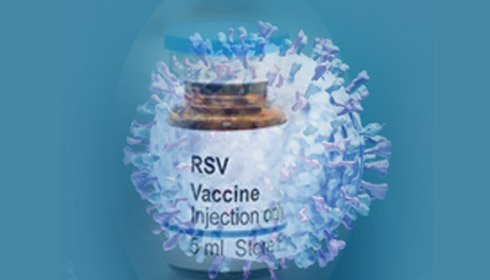
RSV Infections Linked to Nearly Triple the Risk of Death
Respiratory syncytial virus (RSV) is often thought of as a childhood illness, particularly dangerous for infants. But new evidence is shifting that view dramatically. A recent large-scale study from Denmark, presented at the ESCMID Global 2025 conference, has uncovered a much broader and more dangerous impact of RSV—this time on adults.
The study found that adults diagnosed with RSV-related respiratory infections (RSV-ARI) had a 2.7 times higher risk of dying within a year compared to people without the infection. This data, drawn from Danish national health records between 2011 and 2022, tracked over 5,200 adults diagnosed with RSV-ARI and compared them to more than 15,800 matched individuals from the general population.
RSV in adults isn't just a short-lived flu-like illness—it’s increasingly being considered a trigger for serious long-term health problems.
The study clearly shows that RSV is especially harmful for adults who already have lung problems like COPD or asthma. RSV infection often exacerbates these individuals' pre-existing conditions. For example, they are over three times more likely to have COPD attacks and nearly five times more likely to experience asthma flare-ups. They also end up in the hospital more often—about twice as much as those without RSV. In the most serious cases, the need for intensive care is nearly four times higher. What’s more worrying is that the problems don’t stop once the infection goes away. Many patients continue to face health issues long after they've recovered from the initial illness. According to Dr Maria João Fonseca, the study’s lead researcher, “Our findings show that RSV doesn’t stop harming people after the fever fades. It continues to worsen underlying conditions and increases future risks.”
Another major concern is cost. Direct healthcare expenses for each RSV-ARI patient averaged €20,181—more than double the €8,085 spent on non-RSV patients over the same period. This included hospital stays, follow-up treatments, and ICU care.
Dr Stanislava Bratković, a co-author of the study, stressed that “vaccination remains the most cost-effective way to protect vulnerable populations, especially those with chronic respiratory illnesses.”
In India, RSV continues to be viewed mainly as a threat to infants. But data suggest this narrow focus is misleading. A 2023 Indian Council of Medical Research (ICMR) study found that 6–10% of adults coming to hospital emergency departments with severe respiratory illness during winter and post-monsoon months tested positive for RSV.
That may seem small, but in a country of 1.4 billion people, it translates to hundreds of thousands of adult RSV cases annually. The actual number may be much higher, as routine testing for RSV in adults is almost non-existent in India.
The danger of RSV becomes even more serious when we look at India’s existing health problems. A large number of Indians already suffer from chronic lung diseases. According to the Global Burden of Disease Study (2019), around 55 million people in India live with chronic obstructive pulmonary disease (COPD), and another 34 million have asthma. These conditions make people more likely to get seriously ill if they catch RSV. What could be a mild infection for a healthy person can quickly turn into a medical emergency for someone with weak lungs. This makes India especially vulnerable to the long-term impacts of RSV, even though the virus is still not widely tested for or discussed in adult patients.
The Lancet Global Health published a study in 2022 that revealed a common misdiagnosis of RSV infections as bacterial pneumonia in older Indians with lung problems. These misdiagnoses often lead to delays in proper treatment and increase the chance of complications or death.
Dr Sunita Singh, a senior pulmonologist at AIIMS Patna, explained in a 2024 interview with The Hindu, “We see a lot of older patients come in with what seems like mild flu, but it progresses quickly into severe breathing problems or heart strain. We rarely test for RSV, but we should.”
Despite mounting evidence, India does not yet offer RSV vaccination for adults. In contrast, the U.S. and Europe have recently approved RSV vaccines for people over 60 and those with chronic illnesses.
Indian public health experts are urging action. The Indian Association of Preventive and Social Medicine has recommended initiating surveillance and targeted immunisation programs for older adults and those with lung conditions. But no formal policy or national programme has yet been launched.
The Danish study offers a timely and powerful warning: RSV is not just a childhood illness. For adults—especially those with underlying health issues—it can be deadly.
India’s health system, already under strain from high rates of COPD, asthma, and urban pollution, is dangerously underprepared to handle the hidden toll of RSV in adults. The lack of testing, awareness, and prevention strategies means we’re likely undercounting and undertreating this infection in vulnerable populations.
If there’s one lesson India—and the world—learnt from the COVID-19 pandemic, it's this: ignoring a respiratory virus until it becomes a full-blown crisis can cost us dearly. RSV may not be new, but its impact on adults is still widely overlooked. Like COVID-19, it often starts with mild symptoms but can quickly turn serious, especially for older adults and those with lung diseases like asthma or COPD.
That’s why it’s so important to take action now—before RSV becomes another silent public health emergency. Hospitals must begin testing adults for RSV more routinely, especially during the colder months when respiratory illnesses spike. At the same time, vaccinations should be prioritised for high-risk groups, such as senior citizens and people with chronic respiratory issues. Finally, the government needs to launch regular awareness campaigns so people understand the risks and seek help early.
We can’t afford to wait. The data is clear, and the stakes are too high to ignore.
We cannot afford to dismiss RSV as just another seasonal bug. The evidence is clear. The risk is real. We will measure the cost of inaction not only in rupees but also in lives.